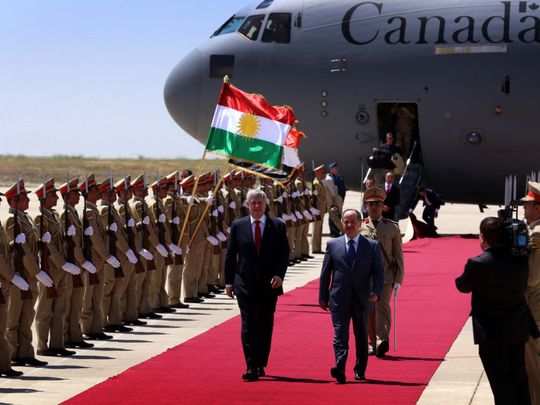
Baghdad: A suicide car bomber on Saturday attacked Iraqi forces west of the capital, Baghdad, killing at least six troops, officials said, as the Canadian prime minister paid a surprise visit to Iraq.
The attacker drove an explosive-rigged Humvee into a military headquarters in the town of Garma, where government forces and allied militias have been battling Daesh terrorists, a police officer said.
The dead included three soldiers and three militia members, he added. Nine other troops were wounded. A medical official confirmed the casualty figures. Both officials spoke on condition of anonymity as they were not authorised to release information.
Backed by air strikes from the US-led coalition, Iraqi government forces have been trying to dislodge the terrorists from Garma, east of the Daesh-held city of Fallujah. Security forces have reported slow progress in recent weeks.
Recapturing Garma is an essential step to tighten the grip around the city of Fallujah, about 65 kilometres west of the capital, which has been under Daesh control since early last year.
Meanwhile on Saturday, Iraq’s Prime Minister Haider Al Abadi received his Canadian counterpart, Stephen Harper, in Baghdad. Canada is part of the US-led international coalition that supports the Iraqi military with air strikes, training and weapons.
Al Abadi hailed Canada’s role in that coalition as “essential” and called on the international community to join forces against the extremist threat as “terrorism is not only threatening Iraq, but the region and the whole world.”
Harper pledged to continue his government’s support for Iraq, before heading north to meet with Kurdish officials.
Al Abadi lauded his country’s security forces and vowed to retake all Daesh-held areas. The terrorist group controls large areas of Al Anbar province and Iraq’s second largest city, Mosul.
“Daesh is now retreating, Daesh is now weak,” he said. “We liberated all areas in Diyala [province], the majority of Salah Al Deen [province], Baghdad is more secure than any time before, we are now liberating Al Anbar and after it, we will go to Mosul.”












